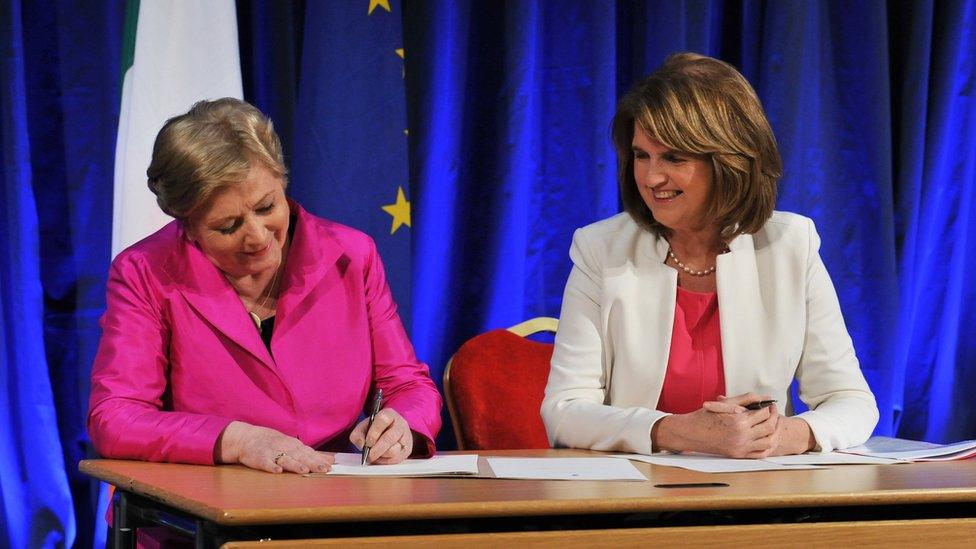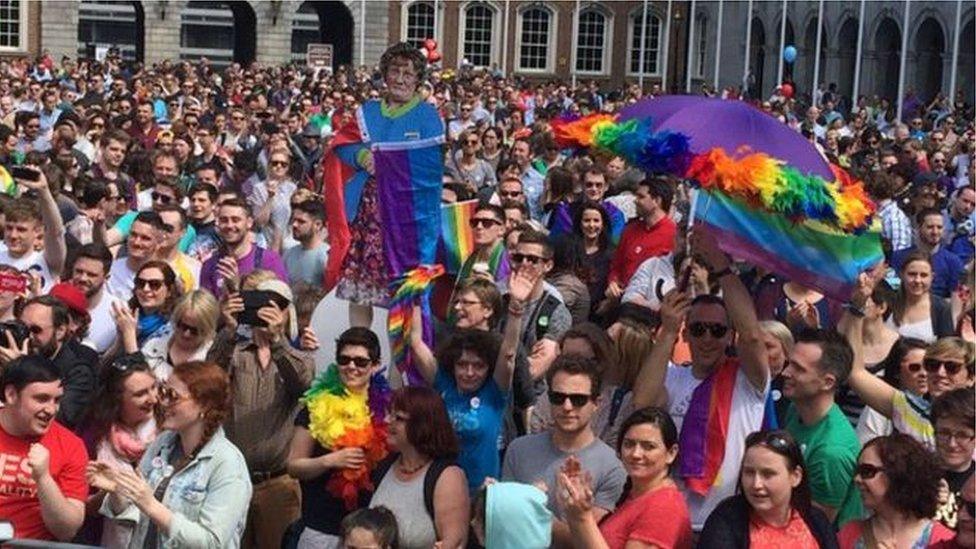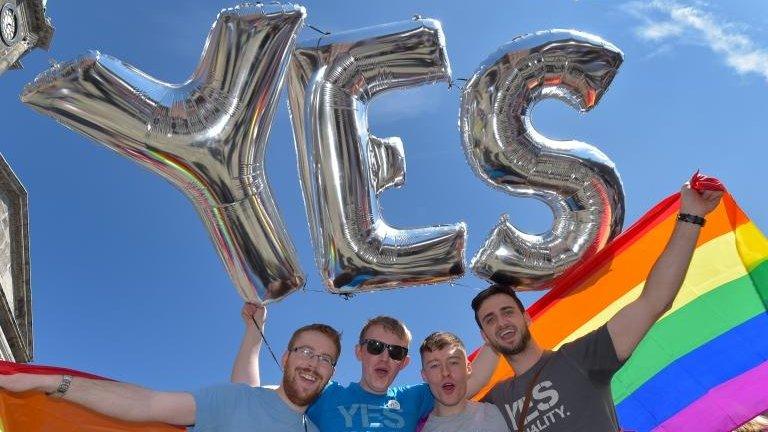Irish same-sex marriage law will come into effect next week
- Published

Irish Minister for Justice Frances Fitzgerald (L) signed the commencement order for the Marriage Act 2015 in front of Deputy Prime Minister (Tanaiste) Joan Burton on Tuesday
Same-sex couples will be able to get married in the Republic of Ireland from Monday 16 November after the final piece of legislation was signed.
It followed a referendum in May, when the Republic of Ireland became the first country in the world to legalise same-sex marriage by popular vote.
From Monday onwards, registrars will be able to register same-sex marriages.
Also, the marriages of same-sex couples who were legally married abroad will be automatically recognised by the state.
Same-sex couples who have already applied to register a civil partnership will be able to convert this into a marriage application.
People who are already in a civil partnership will also be able to get married within days, if they give notice of their intentions to the registrar.
However, no new applications for civil partnerships will be accepted after 16 November.
'Symbolic importance'
Civil partnership will only be available for a limited time for those couples who have already submitted their applications before the legislation comes into effect.
Minister for Justice Frances Fitzgerald signed the commencement order for the Marriage Act 2015 in Dublin Castle on Tuesday.
She said the new law would have a "profound symbolic importance" and a "real and tangible impact" on same-sex couples' family life.
"The Irish people blazed a trail on 22 May 2015 when they became the first sovereign people to choose marriage equality by popular vote," she said.
"They determined that Ireland should be characterised by solidarity and inclusiveness. They have reaffirmed the importance of marriage and family for our society."
In May's referendum, 62.1% people voted yes, while 37.9% voted no.
- Published30 October 2015

- Published23 May 2015
